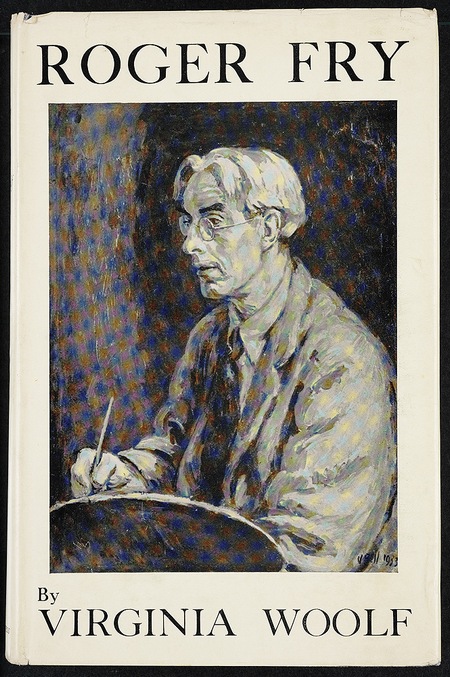Looking
Glasses at Odd Corners has moved!
This site will remain live, but posts and information, old and new, have now
been moved and updated.
Please
visit: http://amberregis.com for the
continuing adventures of this life-writing researcher...
"But something betwixt and between": Roger Fry and the contradictions of biography
He chooses; he synthesises; in short, he has ceased to be the chronicler; he has become an artist. (‘The New Biography’, 1927)
And thus we come to the conclusion, that he is a craftsman, not an artist; and his work is not a work of art, but something betwixt and between. (‘The Art of Biography’, 1939)
Virginia Woolf’s Roger Fry (1940) remains the black sheep of the Woolfian canon. No critical edition is currently in print. It is conspicuously absent from the Penguin and Oxford ‘Classics’ lists, and though Vintage reproduces the text as part of its ‘Lives’ series, there is no scholarly introduction or editorial apparatus. It seems that Roger (to appropriate Woolf’s nickname for the work) has a bad reputation. This is due, in large part, to Woolf’s own response. In her diaries and letters, Roger becomes ‘donkey work & […] sober drudgery’, or nothing more than ‘a piece of cabinet making’. But it is the connection between Roger and ‘The Art of Biography’ that strikes the fatal blow.
This paper will explore Woolf’s contradictory theorising of biography, from the optimism of ‘The New Biography’ to the seeming retractions of ‘The Art of Biography’. Woolf bestows and then strips biography of its claim to art, with the result that Roger (contemporaneous with ‘The Art of Biography’) has been read as an embodiment of its conservative aesthetic. I will argue, however, that Woolf’s later writing on biography, far from enacting a volte face, serves to develop and adapt her earlier position. As such, I will offer a reassessment of Roger, using its method and practice to demonstrate an ongoing Woolfian experiment. In Roger, as in her earlier biographical works, Woolf exploits the productiveness of paradox and contradiction—that ‘something betwixt and between’ at the heart of ‘The Art of Biography’.
 |
| Looking Glasses At Odd Corners as featured in the JVC Online Bloggers Fair, 2 May 2012 |
 |
| Sundial, St Peter's Church, Norton Disney Photograph by J. Hannan-Briggs Used under the Creative Commons License |
In daily life we never understand each other, neither complete clairvoyance nor complete confessional exists. But people in a novel can be understood completely by the reader, if the novelist wishes; their inner as well as their outer life can be exposed. We cannot understand each other, except in a rough and ready way; we cannot reveal ourselves, even when we want to; what we call intimacy is only makeshift; perfect knowledge is an illusion. But in the novel we can know people perfectly. [2]
 |
| Waiting by Dave Walker Source: We Blog Cartoons |
 |
| Become a Famous Blogger by Dave Walker Source: We Blog Cartoons |
.jpg/240px-Virginia_Woolf_by_George_Charles_Beresford_(1902).jpg) |
| Virginia Woolf (photographed in 1902) by George Charles Beresford Source: Wikipedia |
 |
| Virginia Woolf, Roger Fry: A Biography (1940) Source: www.mantex.co.uk |
 |
| Source: Columbia University Press |
 |
| Little Crackers Source: Sky 1 |
 |
| An Account of the Trial Execution and Dying Behaviour of Henry Fauntleroy (1824) Source: Criminal Broadsides Project Harvard Law School Library |